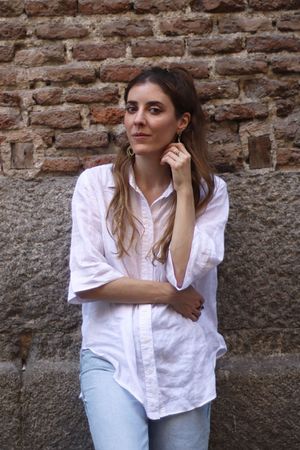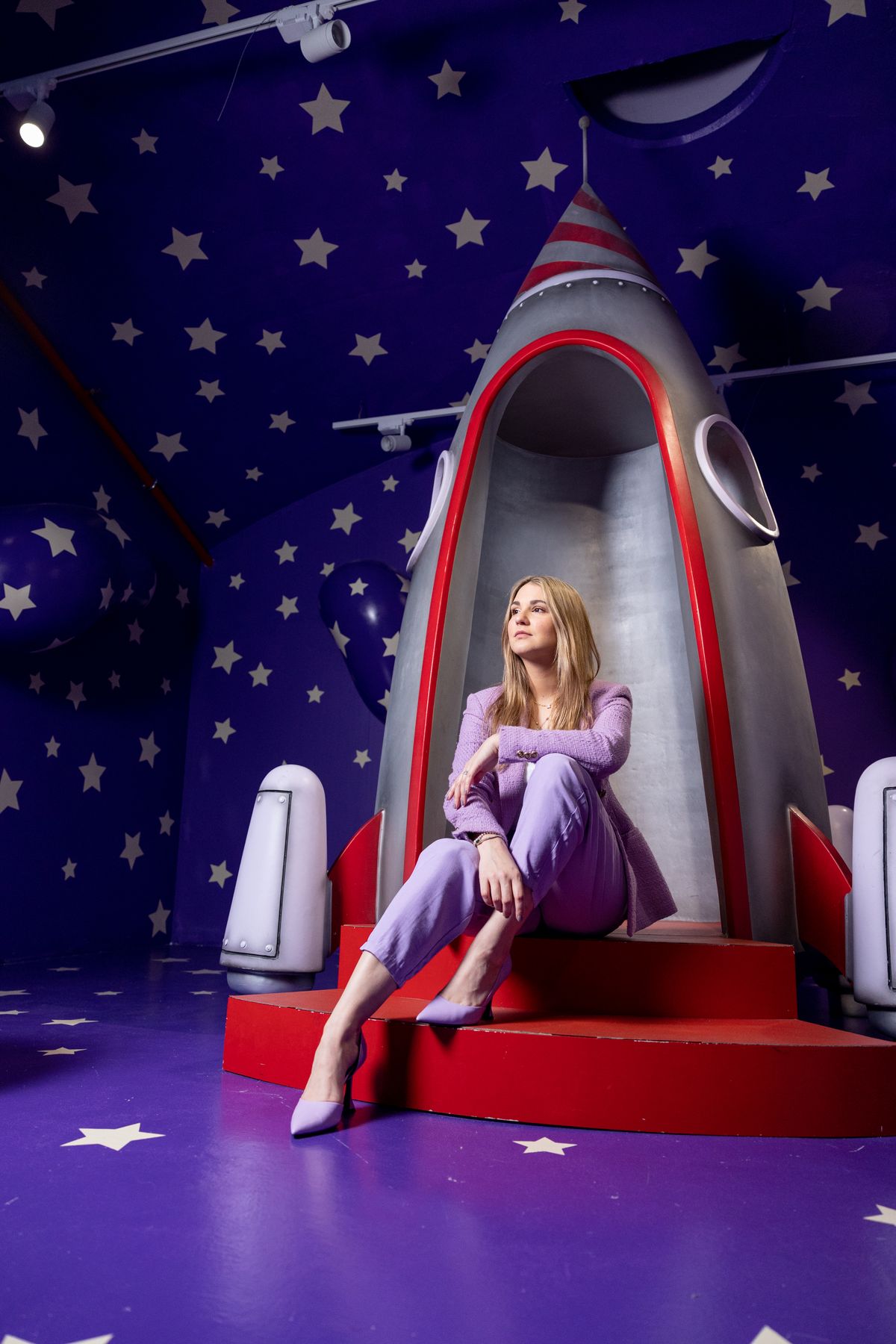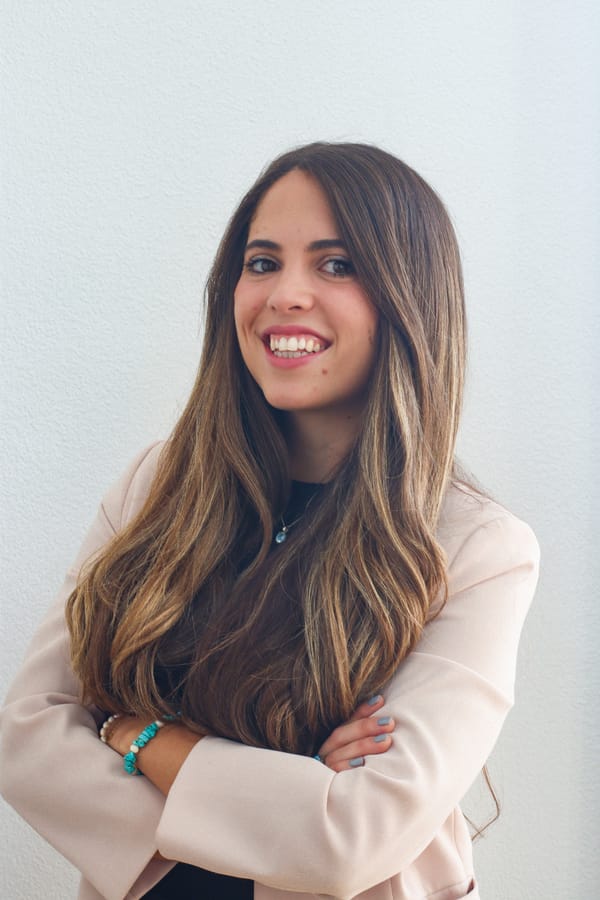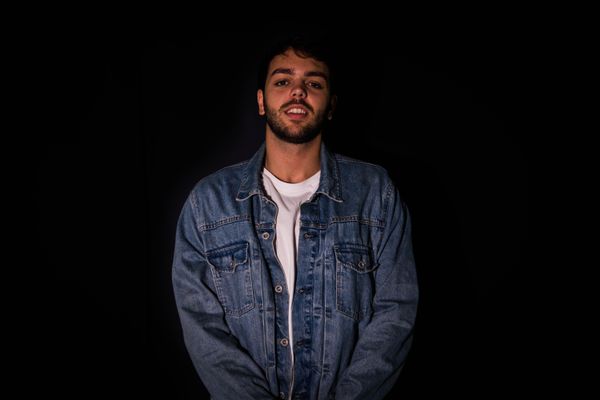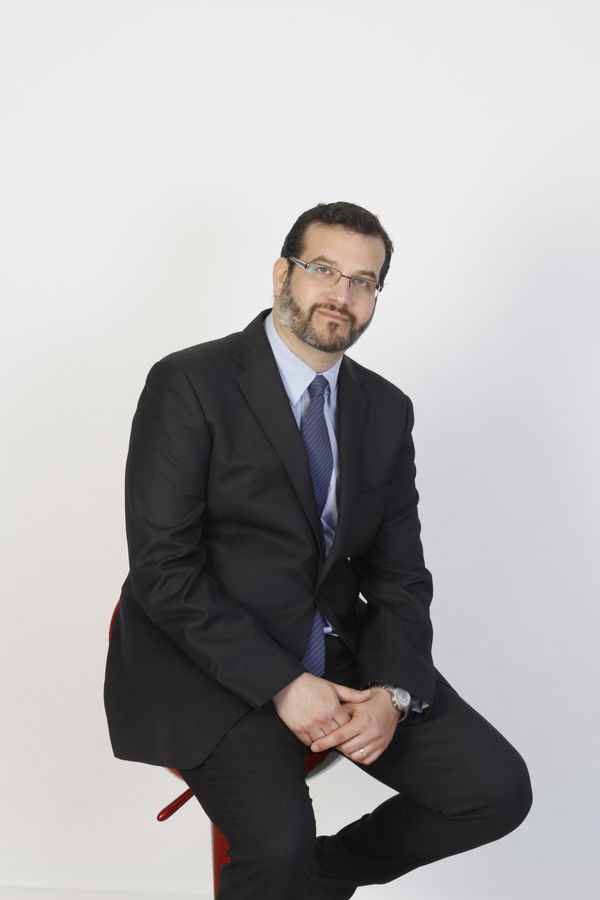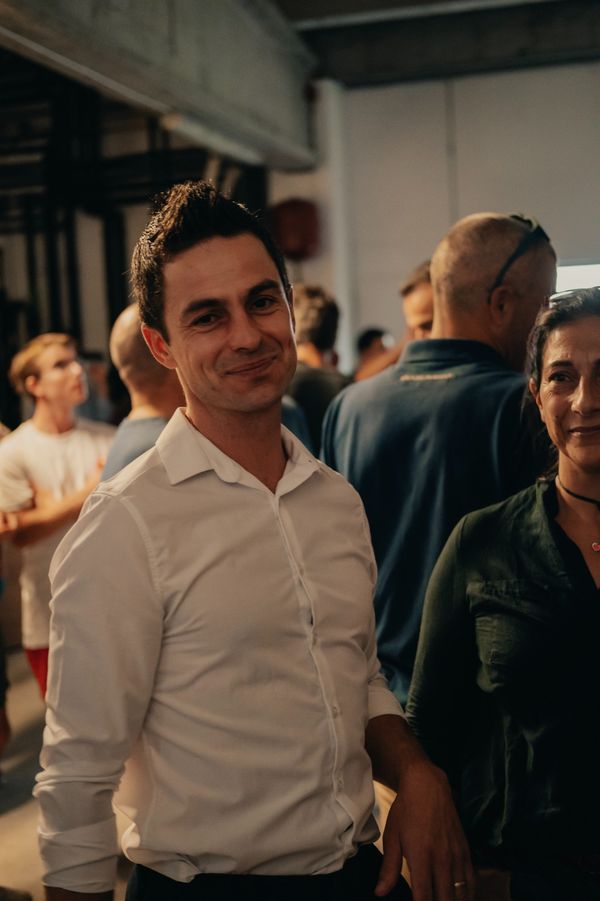Madrid, Spain
Look but don't touch has been the reigning paradigm of the museum experience for centuries. While this approach works great for artwork preservation, the emotional barrier between art and its audience can create a sense of alienation for museum-goers, especially young children. How can they be expected to fully appreciate a work of art if they can't experience it with all their senses?
Venezuelan entrepreneur Alexandra Uzcategui saw an opportunity to challenge the traditional concept of art museums by putting children at the center of the experience. She founded Sweet Space, Madrid's first-ever candy museum, offering a one-of-a-kind multi-sensory journey that invites the audience to explore, touch, and taste their way through art.
Igniting inspiration
Sweet Space's rich world of fantasy and imagination was partly inspired by her childhood. "My aunt is a painter, and my mom has always worked with clay and embossing. I was very involved with art since I was little, which opened my mind to this world of possibilities, creativity, and colors," she recalls. Alexandra's upbringing nurtured her natural curiosity and entrepreneurial spirit. It also instilled in her a deep understanding of art's pivotal role in a child's development and the importance of fostering creativity. This passion for art led her to pursue a career as a graphic designer, where she met her first Sweet Space partner, Corina Mayorca.
Alexandra's relationship with entrepreneurship runs deep. The journey began in her native Venezuela, where she founded one of the pioneering digital marketing agencies. However, her path took her to the United States to continue her studies at Parsons School of Design. It was there that her fascination with modern art museums sparked. After some years of living in New York and Miami, love beckoned her to Spain. In 2019, she moved to Madrid to join her husband. As she settled into her new life, her inventive spirit was already thinking of what to do next: "In Madrid is where I said 'Okay, I have the chance to start over in a new country. What do I want to do, and what do I want to leave behind?'. Because I like to think that wherever we go, we have to leave a legacy," she reveals. She then reconnected with her former design classmate Corina, both driven to create something unique that would have a lasting impact on the children's entertainment industry.
Crafting the concept
Fueled by her passion for art and design, Alexandra dove into extensive market research, revealing a significant gap in the city's children's entertainment realm. The idea was born from there: a museum for children integrating art and trending digital technologies. But how could they engage the younger audience and excite them about art? The answer was simple: candy. "Thinking about a universal theme everyone loves, we thought about candy. Sweets are something global, from childhood to adulthood," Alexandra explains. By building an engaging and interactive candy sanctuary, they could spread the work of contemporary artists, bridging the gap between art and its audience. They wanted to make it accessible and enjoyable for people of all ages.
However, setting up a dreamy candy emporium carried the risk of it being categorized as just another "Pop-up Instagrammable experience." Considering Madrid's reputation as a cultural and art-driven city, with renowned museums and a rich artistic and cultural heritage, they needed to emphasize art to add value to the overall experience and enhance the selling point. The aim was to make Sweet Space an enriching experience beyond pretty pictures, aligning with the artistic essence of the city.
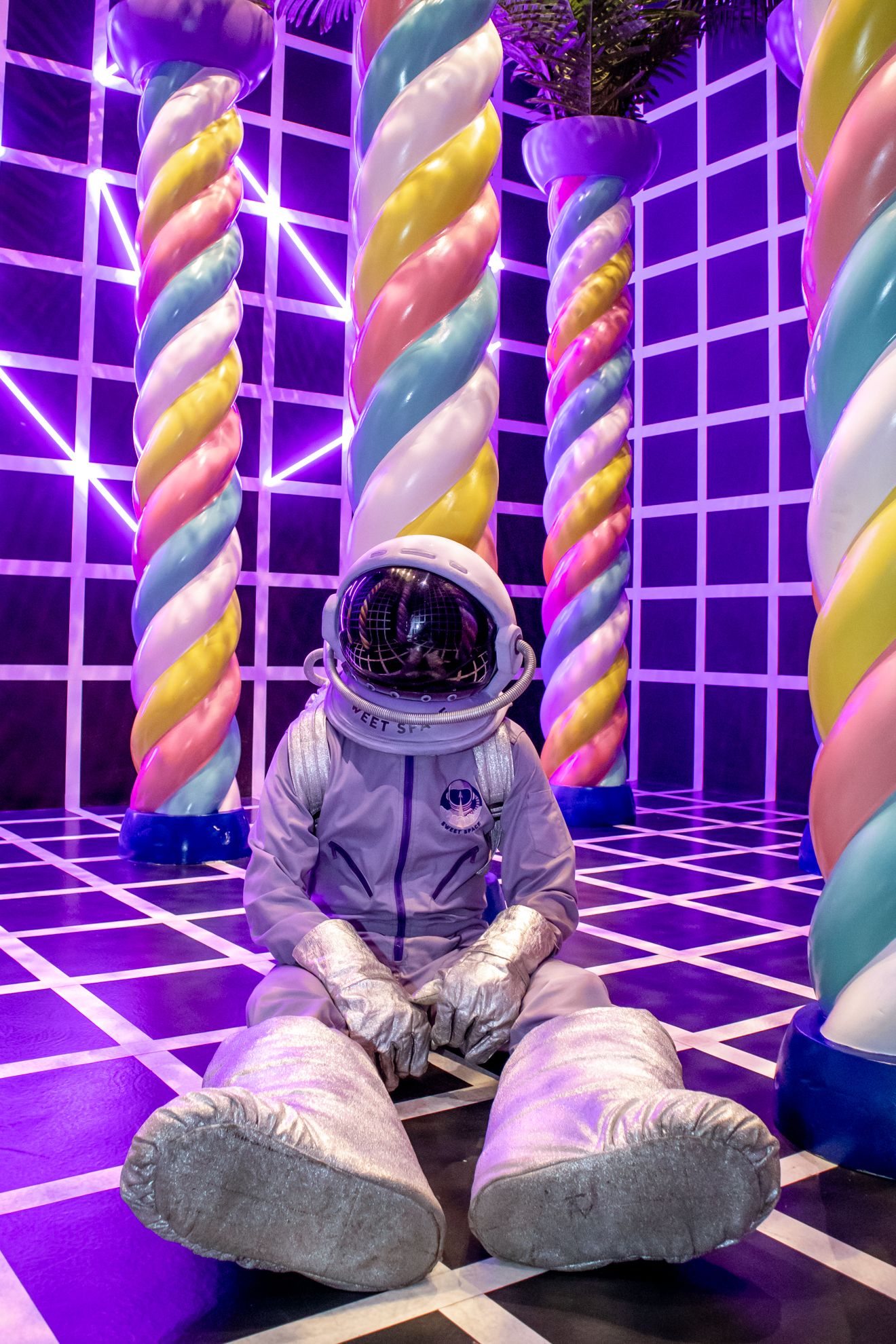
Breaking ground
Immersive art was gaining traction in the US and Asia, but its awareness varied within Europe. While certain regions like the UK, the Netherlands, and Scandinavian nations had already embraced the concept, Spain remained a more conservative market. Alexandra says pitching was no easy feat: "The biggest challenge for us was to explain the concept because it did not exist. It was explaining it to someone who had never seen it."
Despite facing some initial resistance, Alexandra managed to get investors who did recognize Sweet Space's potential and shared her innovative vision: "The investors who joined the project were very visionary and understood the concept clearly when we explained it to them. But just like many of them said yes, many others said no because they didn't understand it," she explains. Although this concept was relatively novel in the Spanish market, its demonstrated success in other cities made it a promising venture: "When we were setting up this concept, it was very innovative — but we were not above the trend. Because when it comes to innovation, if you're way ahead of the trend, it doesn't stick. We were just catching the wave," she adds.
Apart from securing funding to help the concept gain traction, she also collaborated with top artists in Spain to design the museum's nine thematic wonder rooms. The impressive list of artists spans various art forms, from street and plastic arts to fashion. It features renowned names such as Agatha Ruiz de la Prada, Antonyo Marest, Esther Moya, Álvaro Linares, Miju Lee, Misterpiro, and Pablo Carpio. Alexandra even designed one of the space's magical rooms herself.
The sweet debut
With Sweet Space's funding, collaborations, and location all secured, the project was set to kick off in early 2020. However, the unexpected global events forced a complete overhaul of the original business plan. But Alexandra persevered, and with some modifications and new safety measures, Sweet Space launched in December 2020. It was a sweeping success. Alexandra says, "In the first 24 hours, we sold all the tickets for the month. It was crazy. I think people needed that light; to go out, breathe some fresh air, and get out of their houses. So Sweet Space was lovely because it gave people that joy. You could see people smiling behind their masks."
Sweet Space emerged, offering what people desperately craved at the time: connection, creativity, and a sense of wonder. Today, Sweet Space is not just a place for kids to have fun but also a hub for exploration and learning. Sweet Space's multi-sensory experience turns the traditional concept of art galleries upside down, transforming it into an interactive and addictive candy-coated adventure. An explosion of vivid colors and textures surrounds you as you wander through the rooms, each uniquely designed by a different contemporary artist. Apart from interacting with the artwork, each room offers the opportunity to indulge in delicious candy, such as crunchy chocolate balls, colorful gummies, or even ice cream. As soon as you set foot in its first room, you're captured by the smell of candy and the playful sounds of children's music in the background, taking you back to your sweetest childhood memories.
As Sweet Space looks to the future, expansion is one of the leading short-term goals. Alexandra and her team are focused on growth, primarily eyeing other cities in Spain. But they keep an open mind when discussing plans to take Sweet Space to other countries soon. Although Alexandra is currently the only operating partner, she collaborates with international partners, integrating diverse ideas and perspectives worldwide.
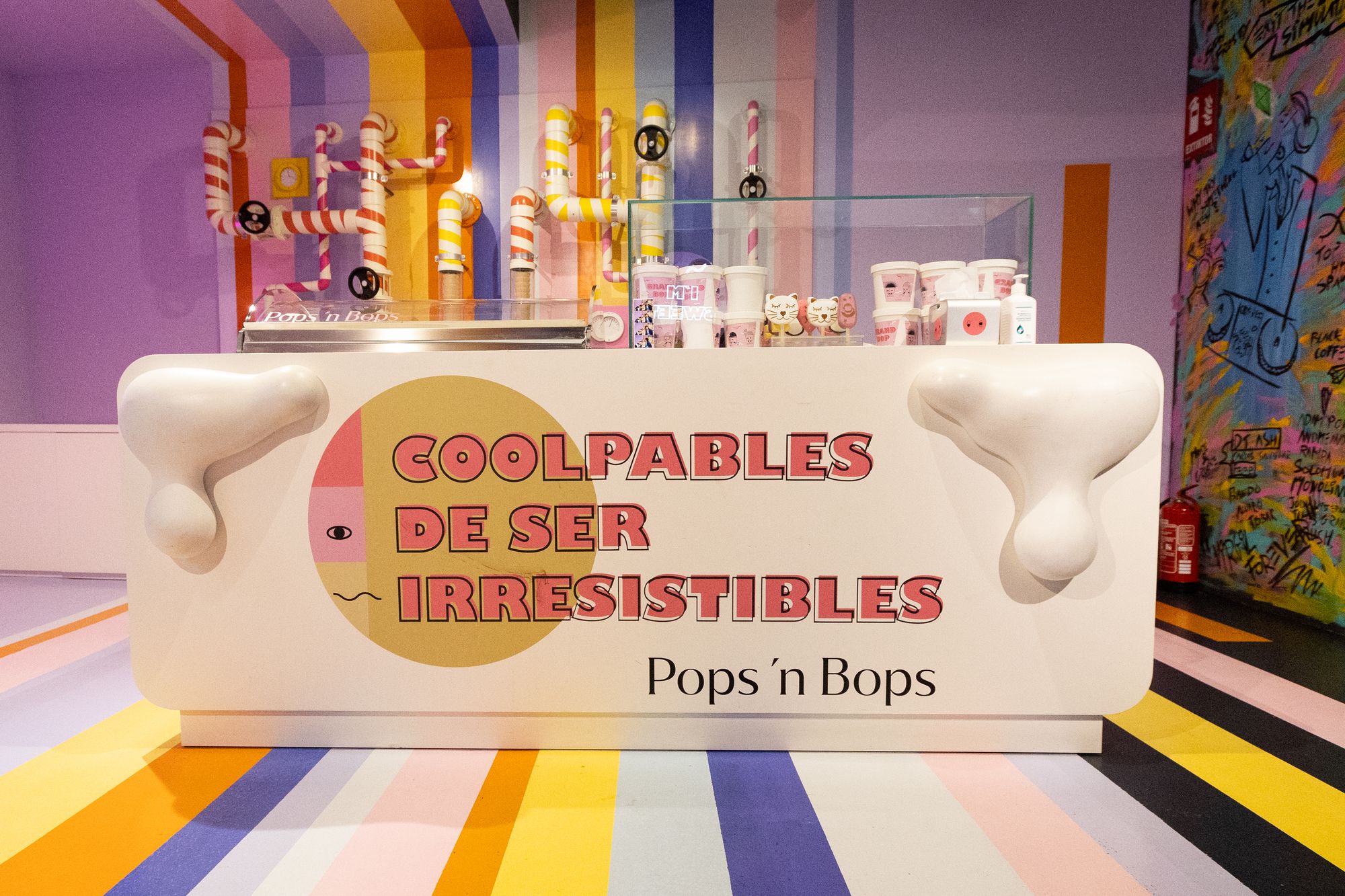
Thriving through uncertainty
Alexandra acknowledges that entrepreneurship has given her many tools: "Doors have been closed for me, doors have been opened for me, but everything has led me to an important learning experience. And I really thank God that my success has not been overnight because, in the end, short races also bring short success. So, the longer the career, the more tools you absorb during that period of time, and you gain knowledge and tools that no one in this life will ever be able to take away from you. And I appreciate that because if I happen to lose everything tomorrow, I know I have the tools to rebuild it."
Risk-taking, flexibility, and adaptability are all essential components for the success of any venture, and Sweet Space's story is the perfect example. Alexandra's wise words of advice ring true: "Don't fall madly in love with an idea. Just know that ideas can evolve, and your business model can change even after launching it. One must detach a little from that 'crush' and be more rational than emotional," she suggests.
As a new mother, now more than ever, Alexandra realizes the importance of contributing to children's creative development, entertainment, and joy. And with the legacy she always longed for, she has gifted her child (and tens of thousands more each year) the opportunity to explore, learn, and experience the world through art. Looking, touching, smelling, listening, and tasting — the world of Sweet Space is all theirs for the taking.
